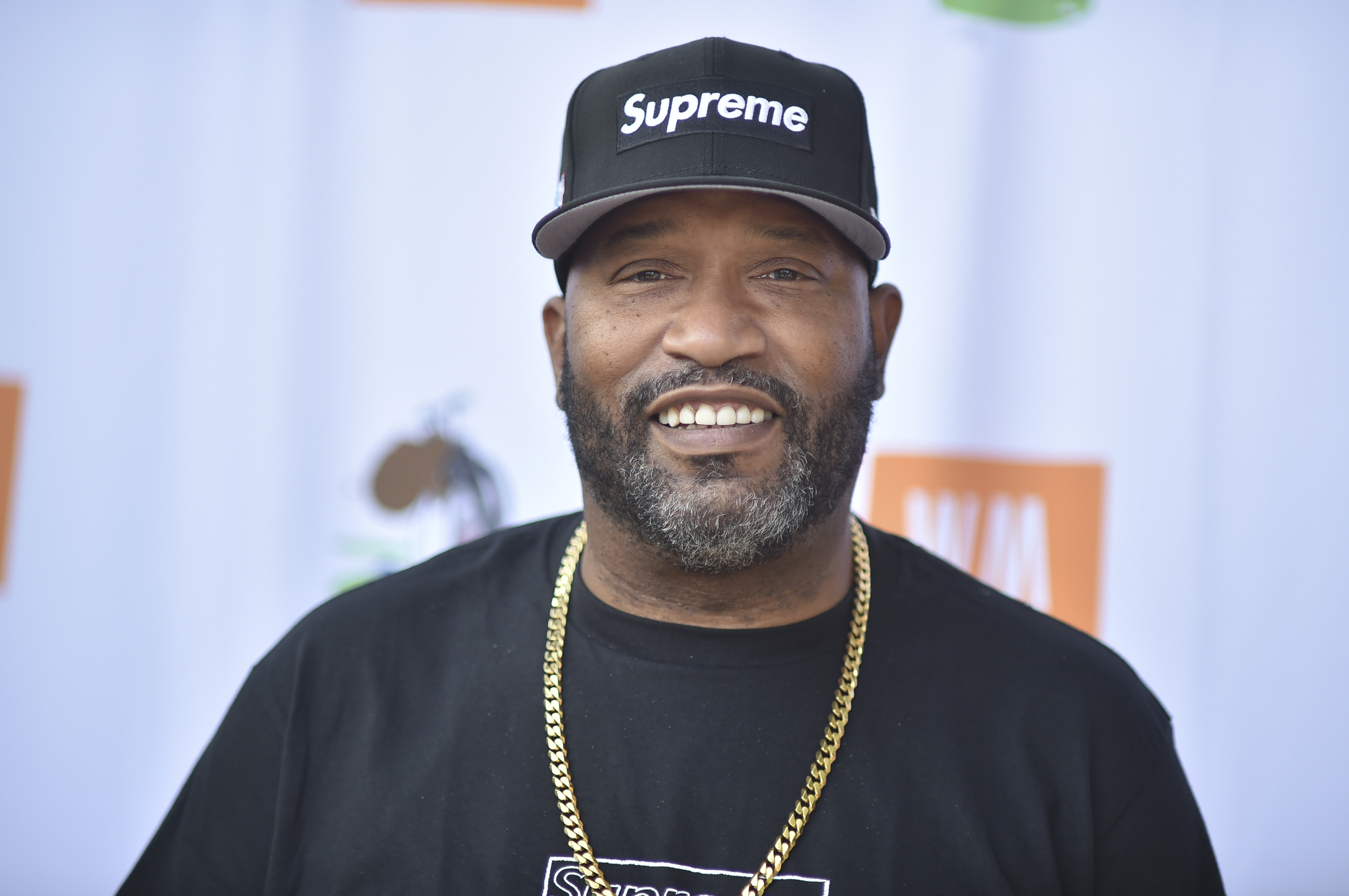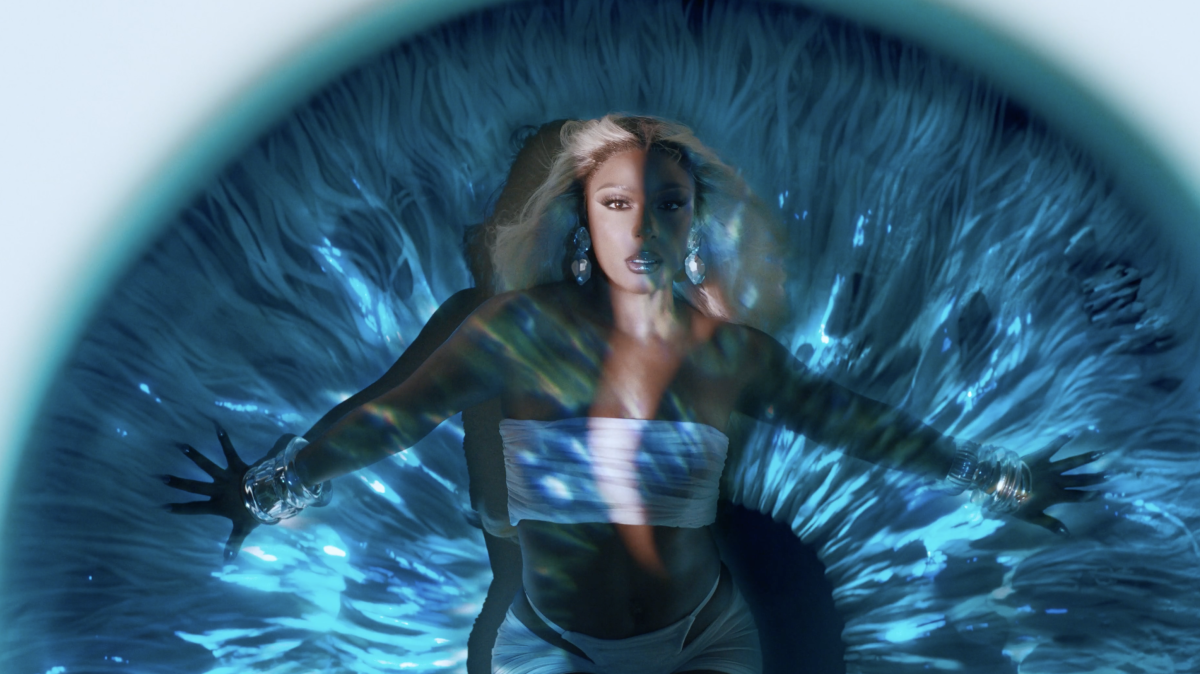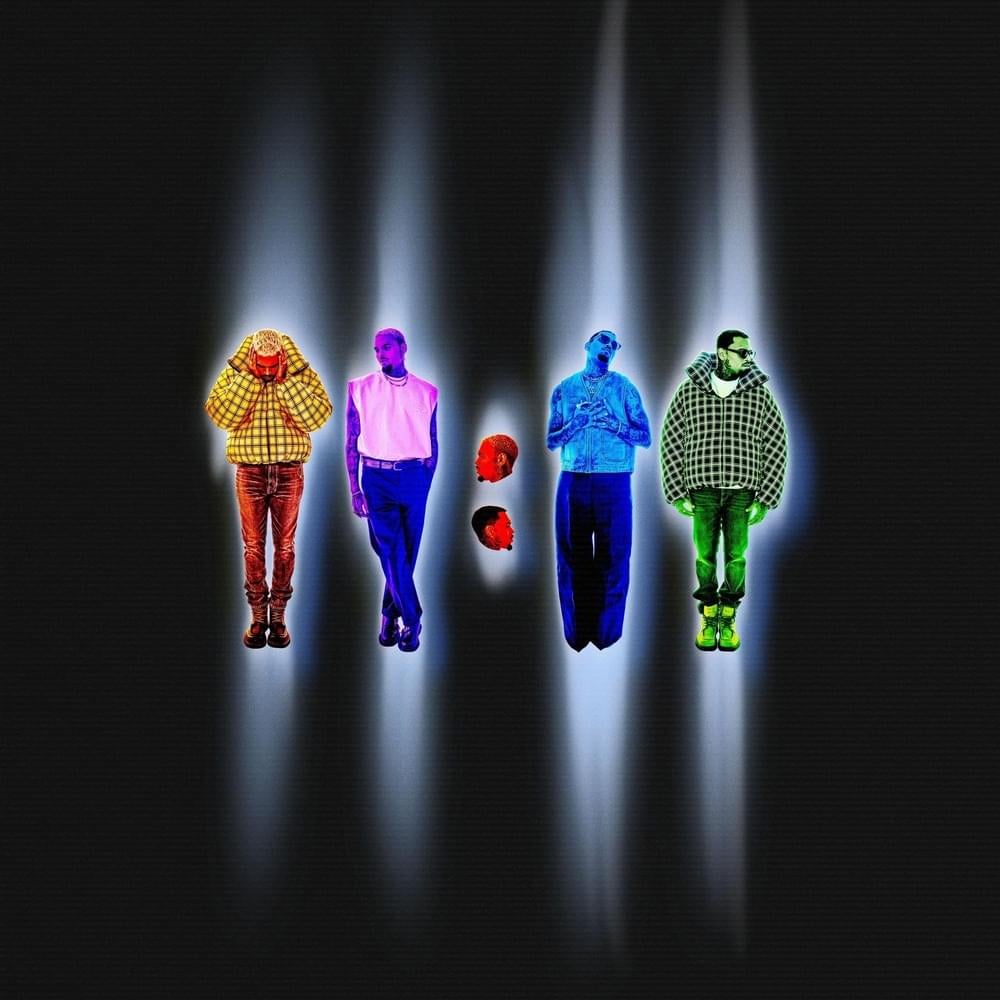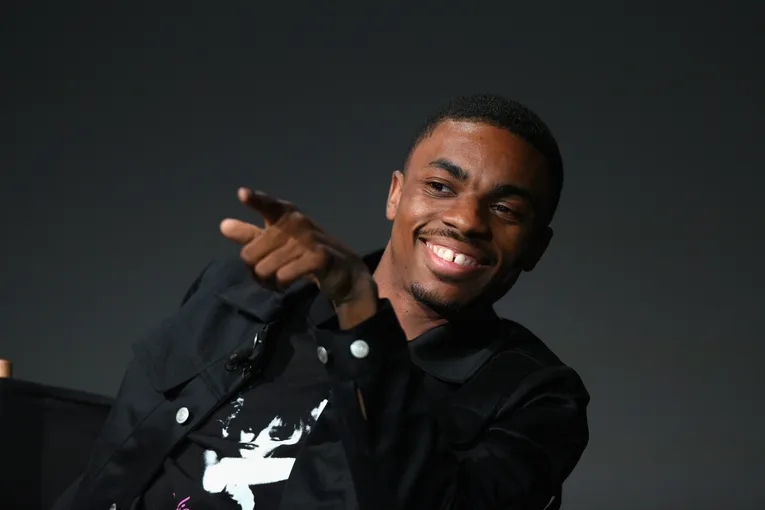At its best, Hannah Merrick’s stream-of-consciousness songwriting feels like sitting shotgun with her as she crosses the country, taking in the sublime and the absurd in equal measure.
If you think of other artists while listening to Big Swimmer, that’s not lost on King Hannah. Singer Hannah Merrick namedrops Bill Callahan, titles a song after John Prine, and recruits Sharon Van Etten on two songs; the album, Merrick’s second, is clearly the product of those influences. It’s easy to hear echoes of Callahan’s dry humor and Van Etten’s plaintive vocals; Cassandra Jenkins’ meditative jams and Courtney Barnett’s stoned observations come to mind as well. It’s all in service of Merrick’s meandering writing style, which finds meaning in small vignettes borne from traveling America. At its best, Swimmer feels like sitting shotgun with the duo of Merrick and guitarist Craig Whittle, like a tour vlog set to music. Because it’s so laid-back, Swimmer doesn’t necessarily try to transcend its inspirations, but it’s charming in its own right.
Merrick spends much of the album going on tangents in a low deadpan voice, as though recording exhausted voice memos documenting a given day’s journey. A lot of those tangents are genuinely funny, like the job interview that opens “New York, Let’s Do Nothing:” “He said, ‘So tell me something about you’/I said, ‘Well I’m a singer, musician too’/He said, ‘Oh no, not another one.’” Elsewhere, the commentary gets lost amid wandering musings on vending machines, as on the eight-minute “Somewhere Near El Paso.” In the album’s most compelling moments, the observations lead somewhere: Merrick increasingly ruminates while watching true-crime documentaries on “Suddenly, Your Hand,” despairing at the callousness of serial killers without being able to pull away. Merrick apologizes for her obsession right at the end (“And I’ve said it before and I will say it again/I’m really sorry for all the moods that I get in”), but Whittle’s closing guitar solo carries on long after, prolonging the fixation.
Whenever the album breaks out of its stream-of-consciousness flow, it shows a clearer sense of identity. Merrick’s secret weapon is her soaring singing voice, effectively contrasting the Sprechgesang of much of the record. On the title track, Merrick plays with her vocal phrasing, speeding up and slowing down like a human tape machine, which makes it more striking when she draws out the line, “If it feels right to do so,” on the refrain. On “Lily Pad” and “Davy Says,” Whittle turns his guitars up: The former is an intentional Slint homage (complete with a reference to the Spiderland album cover) and the latter a straight-up catchy pop song. The tighter song structures are a welcome salve against the duo’s tendency to meander. “Lily Pad” changes course halfway through, and that shift hits harder for its abruptness.
The levity of Merrick’s lyrics occasionally goes overboard. In between the terrifically tense guitar breaks on "Milk Boy (I Love You),” she watches as a parent threatens his child, and the descriptions are haunting until a baffling lyric about Dallas Buyers Club nearly sinks the whole song: “They reminded me of McConaughey/In that film about AIDS that didn’t win enough.” (For the record, it won three Oscars from six nominations, one of which went to Jared Leto.) The sweetest song on the record, and one of the best, is the much lower-stakes closer: “John Prine on the Radio” is literally about chilling out to your favorite music, but it has the most focused songwriting on the whole record. When Merrick harmonizes with herself, it’s plainly beautiful, with no snark deflating the earnestness. On an album insistent on speak-singing across America, documenting every place visited and song listened to, the moments of sincerity are the most distinctive.
All products featured on Pitchfork are independently selected by our editors. However, when you buy something through our retail links, we may earn an affiliate commission.







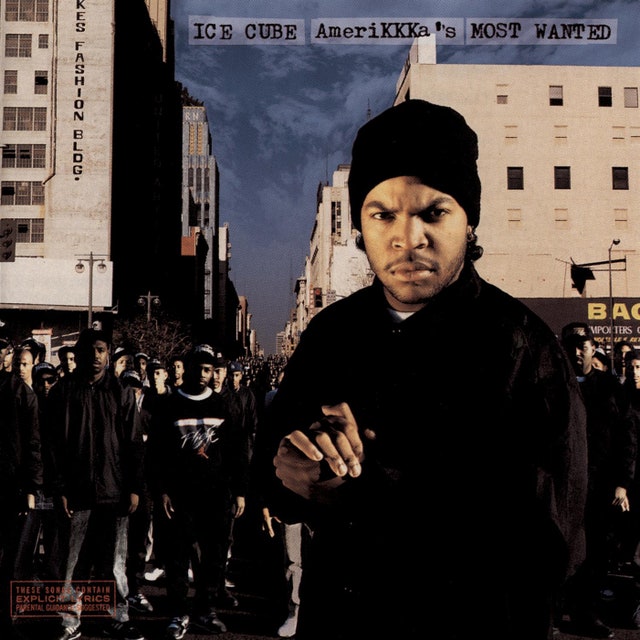
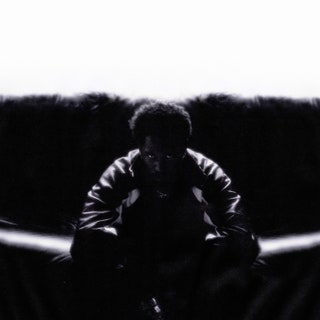
.jpg)

